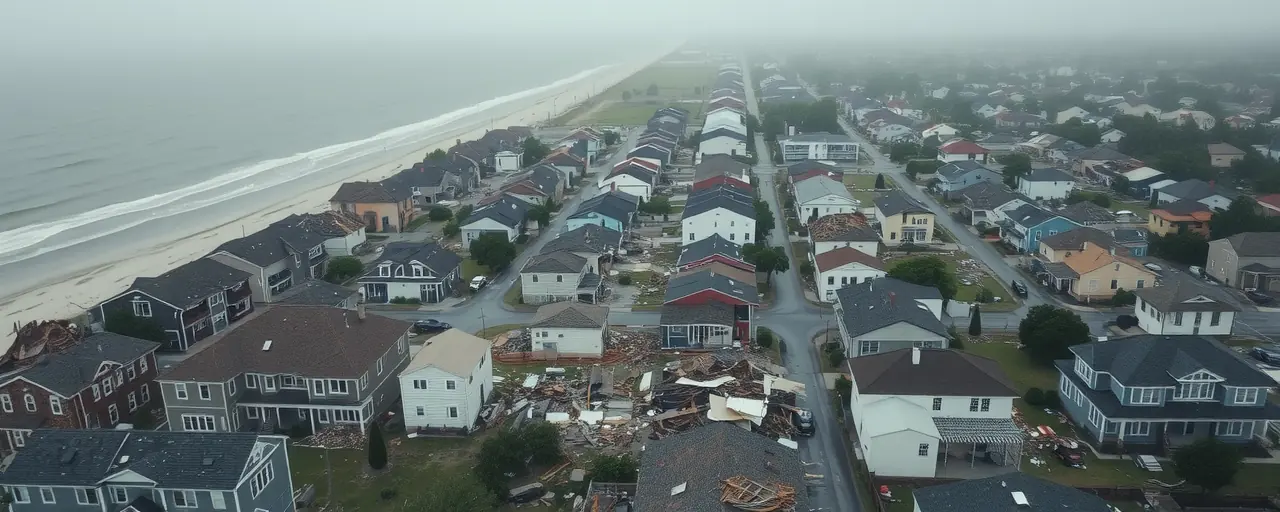Hurricanes Leave No One Untouched
Hurricanes rip through towns, destroying homes and upending lives. The White House’s 2025 proclamation highlights the devastation of storms like Helene and Milton, which left communities in ruins. It urges preparedness, a vital step. Yet, calling for family evacuation plans and supplies ignores a harsher truth: recovery demands robust federal support to ensure every person, no matter their income or background, can rebuild.
Hurricane Katrina, now 20 years past, revealed more than nature’s power. It exposed deep inequities in aid distribution. Low-income and minority neighborhoods waited longer for help, while wealthier areas recovered faster. As storms grow more destructive, a strong federal role remains essential to prevent history from repeating itself.
Federal Support Levels the Playing Field
The proclamation encourages households to stock food, water, and batteries. This advice makes sense but overlooks a key issue: many families can’t afford these essentials. Federal aid, covering 75 to 90 percent of recovery costs, provides a lifeline. It ensures that rebuilding homes and lives isn’t reserved for those with deep pockets.
Some policymakers push for states and local governments to handle disasters independently, arguing it streamlines efforts. This view misses the mark. States often lack the resources to manage massive storms alone. Data from Hurricane Harvey shows 60 percent of Black residents felt neglected compared to 33 percent of White residents. Relying solely on local systems risks widening these gaps.
Climate Change Intensifies the Threat
Our warming planet is making hurricanes deadlier. Studies reveal that ocean warming has boosted storm winds by about 18 miles per hour in recent years. Rainfall has increased by 11 percent, turning floods into catastrophes. The proclamation’s focus on preparedness is critical, but it avoids addressing the climate crisis driving these changes.
Tackling this threat demands federal leadership. Investments in flood defenses and modern warning systems save lives. Yet, proposals to privatize flood insurance or slash preparedness grants undermine these efforts. Such policies prioritize profits over people, leaving low-income families to bear the brunt of worsening storms.
Fair Recovery Requires Federal Oversight
Disaster recovery must center fairness. Research shows low-income households, racial minorities, and non-English speakers struggle to access aid. They face complex FEMA forms and lack resources to evacuate. The proclamation’s emphasis on local control sidesteps these barriers. Without federal guidance, aid often favors wealthier, predominantly White areas, as seen in post-Harvey grant patterns.
Advocates for fairness call for federal grants to prioritize equity. Lowering cost-shares for high-need communities and offering multilingual outreach can bridge gaps. The recent executive order boosting local roles may speed some responses, but it risks uneven accountability. A unified federal approach ensures everyone gets help.
Together, We Rebuild Stronger
Hurricanes strike without prejudice, but recovery systems often favor the privileged. The 2025 proclamation raises awareness, yet it falls short of demanding the federal commitment needed to protect all Americans. We must push for full FEMA funding, fair grant policies, and climate-focused infrastructure. Every community deserves equal protection.
With hurricane season approaching, the path forward is clear. A strong federal system can unite us, ensuring no one is left behind. Let’s demand a future where every family can recover and thrive. The storms will come, but together, we can face them with strength and justice.
